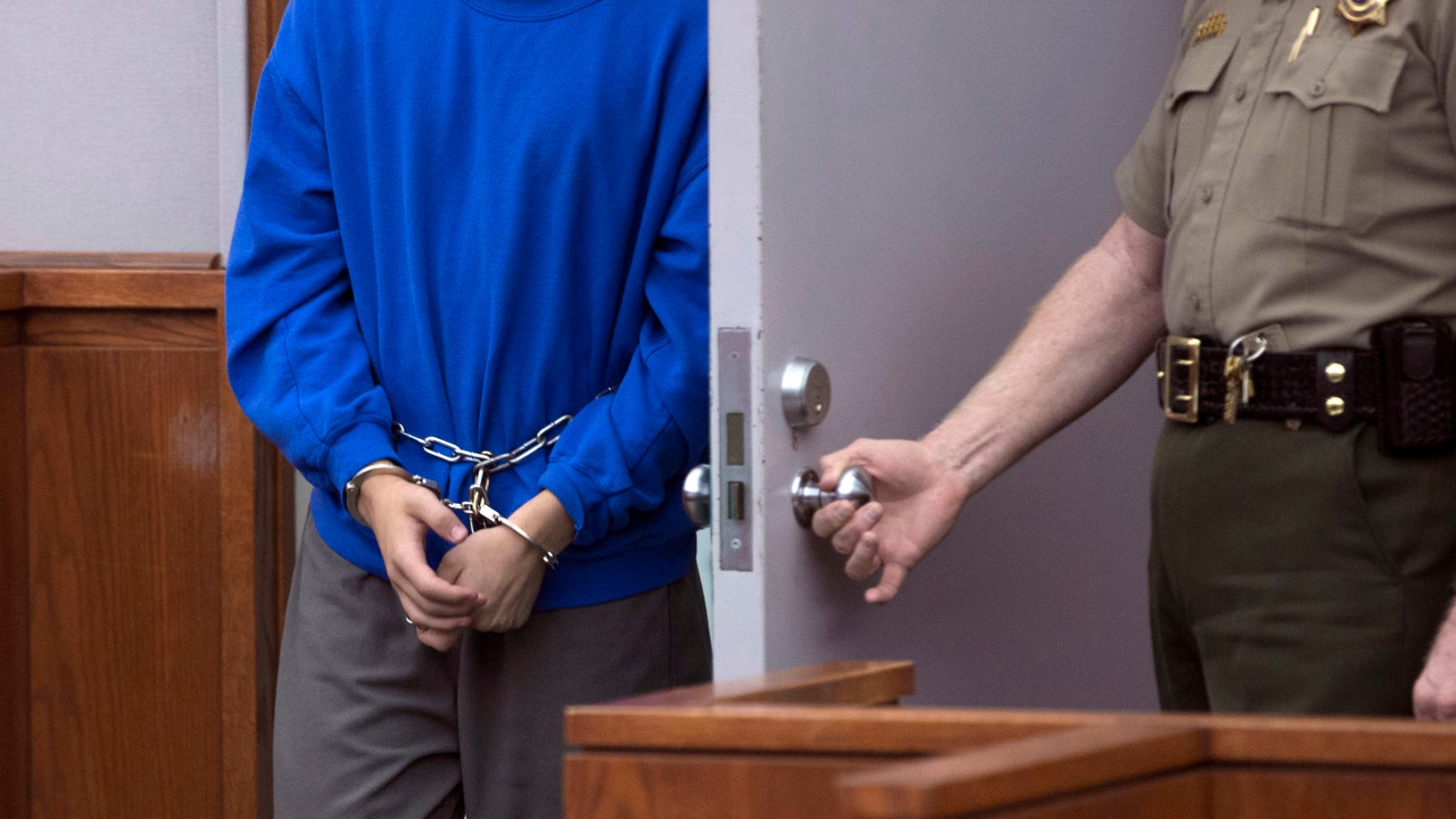To obey U.S. Supreme Court ruling, Pennsylvania faces special challenges
Listen
A minor enters court for a plea deal in this 2014 file photo. He pleaded guilty to two counts of murder, acknowledging that he intentionally and knowingly stabbed his two younger brothers to death last year. (Laura Seitz, Deseret News/AP Photo, Pool)
More than 1,500 inmates could be affected by the U.S. Supreme Court ruling that bans mandatory life sentences without parole for juvenile offenders.
More than 1,500 inmates nationwide could be affected by the U.S. Supreme Court ruling that bans mandatory life sentences without parole for juvenile offenders. Nearly one third of these are in Pennsylvania, with a majority in Philadelphia.
Temple University law professor Jules Epstein explains to NewsWorks Tonight’s Dave Heller how the keystone state’s definitions of murder have lead to this large number of cases.
The most expedient means of addressing the cases is through the parole system, but, unlike other states, it’s prohibited by another Pennsylvania law.
WHYY is your source for fact-based, in-depth journalism and information. As a nonprofit organization, we rely on financial support from readers like you. Please give today.


